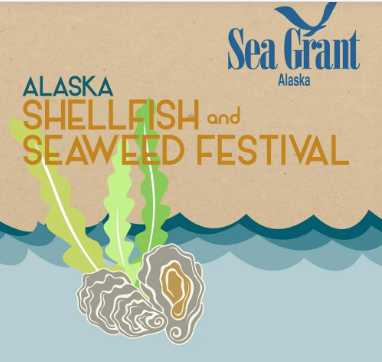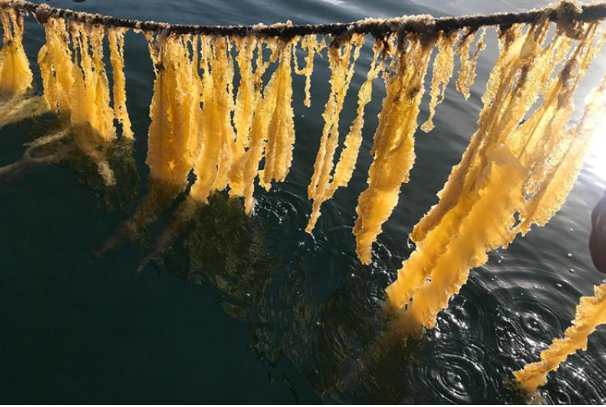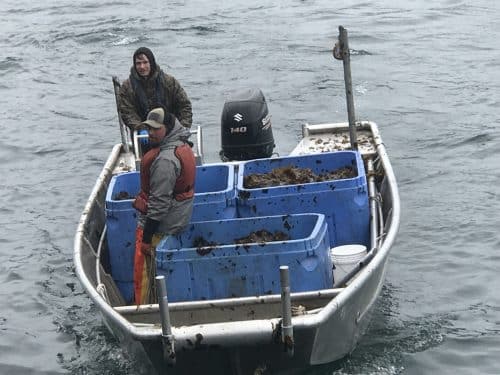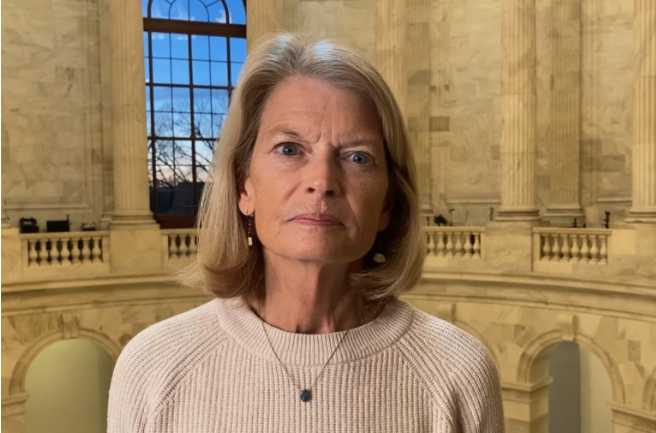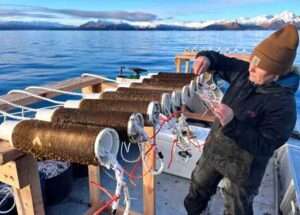
Seaweed farming is a major industry worldwide, with the United States importing more than 95%—19 million tons—of its edible seaweed. Alaska’s coast is ideal for producing home-grown seaweed to meet a greater share of the domestic market and to export and meet international demand. While interest in seaweed farming is growing in Alaska, a lack of training opportunities and guidance on cultivation methods hinder the development of domestic commercial seaweed farming in Alaska and the nation.
In order to increase workforce development in the Alaskan kelp farming industry, Alaska Sea Grant hosted the three-day intensive hands-on workshop Foundations of Kelp Farming at the Kodiak Seafood and Marine Science Center in March. The workshop consisted of activities and presentations from experienced kelp farmers, industry professionals, and experts.
Participants from across Alaska came prepared for field activities. Some of the hands-on field training was held on board a small vessel in Chiniak Bay. Participants interacted with Kodiak kelp farmers Alf Pryor and Nick Mangini to learn about the history of farming, best operational practices, and current obstacles in the industry. A few registered participants from Togiak who were weathered out were mailed course materials and presentations and were able to participate remotely.
Additional topics included how to navigate permitting requirements for aquatic farms in Alaska, identification of seaweed species, life cycles of seaweed, the hatchery process, harvest site evaluation, use of the Mariculture Map, farm gear and equipment, business plan development, available farm loans, gear deployment, seeding and harvesting techniques, quality handling, and safety.
Sessions were led by Alaska Sea Grant’s mariculture specialist Melissa Good, marketing specialist Quentin Fong, and seafood technology specialist Chris Sannito. Michelle Morris with the Alaska Department of Fish and Game, Karen Cougan with the Alaska Department of Natural Resources, and Ian Grant with the Alaska Small Business Center also shared their expertise. The workshop was supported by Alaska Sea Grant with workforce development funding from the State of Alaska and the Alaska Fisheries Development Foundation.
Alaska Sea Grant plans to host additional Foundations of Kelp Farming workshops in the future. Contact Melissa Good, Alaska Sea Grant’s mariculture specialist, for more information or to join our mailing list to stay connected and to hear about future course offerings.
[content id=”79272″]

